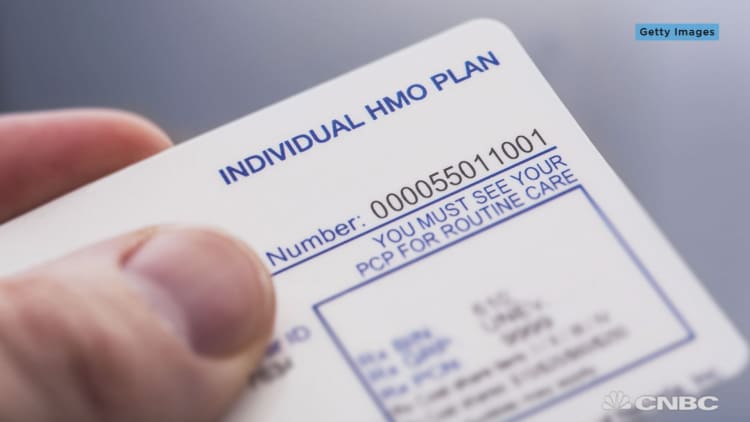
Scammers aren't just after your money. These days, they also want your health insurance card.
A recent study found the number of cases of medical identity theft jumped more than 21 percent in just one year, costing the average victim $13,500 to fix.
Experts warn those numbers may be telling only part of the story since this type of fraud is relatively new and harder to categorize.
"I believe it is vastly under-reported and misunderstood even by victims experiencing it," said Eva Velasquez, president and CEO of the Identity Theft Resource Center, a nonprofit organization that provides education and assistance to victims.
Examples of medical identity theft include someone using your insurance to see a doctor, obtain prescriptions, buy medical equipment or even file a false claim.
As in other types of identity theft, Velasquez said, older Americans are far more vulnerable because they don't monitor their credit as often, are more trusting of online interactions and may be dependent on others for their care.
There are ways you can lower your risk.
Get a copy of your medical records
Under the Health Insurance Portability and Accountability Act (HIPAA), you are legally entitled to a copy of your medical and billing records held by health plans and providers.
"The first step in being able to detect an anomaly is, you have to know what your baseline is," said Velasquez, who spent 21 years at the San Diego District Attorney's Office dealing with consumer protection issues.
Once you have these records, keep it somewhere safe and add new information each time you visit a doctor. This way you'll have proof if it was altered if someone begins using your information illegally.
More from Retire Well:
3 money things to do when turning 70
Snagging retiree travel discounts
Social Security: When to claim early
Read every explanation of benefits
These statements, often referred to as "EOBs," are documents sent by your insurance company which list medical services you received and how those services were paid for.
They are complicated and can be difficult to interpret, especially for those with multiple health conditions and frequent visits to providers.
"We recommend even if you can't understand every nuanced piece, look at things like dates of service or provider names. If you see something you don't recognize, follow up right away," Velasquez said.
Don't give out unnecessary information
It may not sound like a dangerous request, but allowing your doctor's office to photocopy your driver's license or credit card is not a smart move, and often isn't even required to receive services.
If you're asked by the front desk to provide anything other than your insurance card, ask why it's needed and how the office plans on protecting your information. If you're not comfortable with their answer, then don't give them your ID or credit card.
What to do if you are a victim
Medical identity theft can have devastating and costly ramifications for victims, so don't wait to report it.
"Follow up right away if you have a question, go directly to the source, your insurance company or provider who's sent you the bill," Velasquez said.
Also be sure to file an identity theft report with the Federal Trade Commission.






